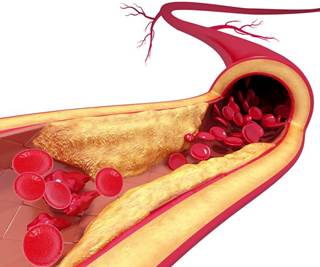Inflammation key to atherosclerosis—but more drug testing needed
Therapies targeting cholesterol and inflammation have both shown the ability to reduce cardiovascular events among patients with atherosclerosis, but more evidence is needed before anti-inflammatory drugs gain widespread use similar to statins, according to a consensus statement published May 14 in the European Journal of Preventive Cardiology.
The statement—authored by the European Society of Cardiology’s working group on atherosclerosis and vascular biology—was catalyzed by the results of the recently published CANTOS trial. This study showed the anti-inflammatory drug canakinumab cut the risk of subsequent cardiac events in heart attack survivors, even when LDL cholesterol levels weren’t significantly lowered.
“Although the results of the CANTOS trial can be considered a milestone in cardiovascular medicine, canakinumab prescription for patients with cardiovascular risk to improve their prognosis needs to overcome certain hurdles,” wrote the researchers, including lead author Jose Tunon, MD, PhD, a cardiologist at the University Hospital Fundacion in Madrid.
“In this regard, the results of the ongoing CIRT and COLCOT trials will clarify whether the cardiovascular benefit of IL-1β (interleukin-1β) blockade extends to other anti-inflammatory drugs that work through different mechanisms, as this could represent a change on the horizon of the treatment of atherosclerosis.”




Comments
Post a Comment